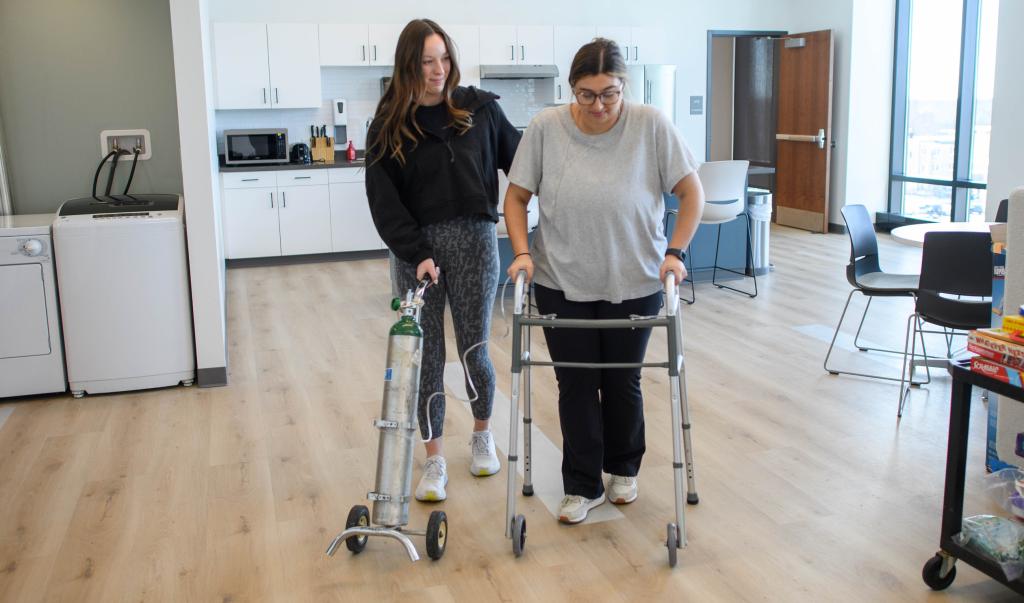Occupational Therapy
| About This Program | |
|---|---|
|
Program Contacts
Scott McNeil |
|
|
Review the admissions requirements |
|
Curriculum and Delivery
|
|
| Graduate Success and Careers | |
|
Paying for Your Education
Did You Know? The SC grant is available to Occupational Therapy graduate students if they received a bachelor’s degree from Springfield College. This results in receipt of a $3,333 grant per term of full-time academic study and no application is necessary! Learn more about the SC Grant. |
|
|
Upcoming Events
Check back soon for upcoming events! |
|
|
Like us on Facebook |
|

Restore Independence.
Springfield College offers multiple pathways for you to pursue a career in the field of occupational therapy. As a student in the Health Science: Pre-Occupational Therapy program you will have the option to continue on to a graduate level program in occupational therapy.
During the undergraduate portion of the program, you will engage in courses and practica required for the occupational therapy degree, the health science degree, and the College's general education requirements. Upon successful completion, you will have the option to pursue either Springfield College's entry-level MSOT or OTD program.
- BS: Graduates will receive a BS in Health Science: Pre-OT
- BS to MSOT: Graduates will receive a BS in Health Science: Pre-OT and a MS in Occupational Therapy in 5 and a half years
- BS to OTD: Graduate will receive a BS in Health Science: Pre-OT and a OTD in 6 years
Students can select which entry-level degree option (MSOT or OTD) they would like to pursue after the first year of graduate study (fourth year of program). Graduates of the MSOT or OTD program will be eligible to take the board exam, become licensed, and work as an occupational therapist.
Graduate classes, held on campus, are followed by 6 months of full-time fieldwork in at least 2 settings. With hundreds of full-time fieldwork sites across the country, the Springfield College Occupational Therapy programs offer a wide range of experiences working with people with differing disabilities and conditions, using different treatment approaches, in various practice settings.




